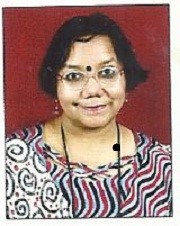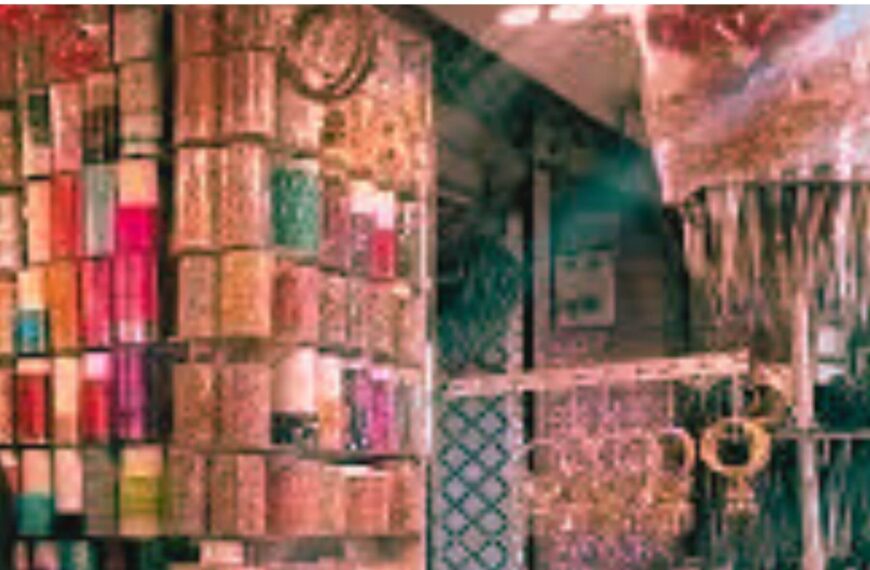Ketaki shares her father’s nightly tales about Shah Alam II’s court, revealing intrigue, betrayal, and fragile power dynamics in a world of human drama, in the concluding part, exclusively for Different Truths.
Father’s night duties kept him preoccupied for a couple of weeks. We were kept waiting.
That evening, the full moon was inundating our lane, leaving our house aside, as it fell not in its trajectory, reminding us of the famous Bengali number, sung by the legendary classical singer, Begum Akhtar, ‘Jochchona koreche arhi/Ashena amar bari/Goli diye chole jaye/Lutiye rupoli sari’…(Moonshine has taken umbrage/Does not care to visit my place/ But slips by the lane/ Downing a silvery sari instead, translation mine).
Father had been back from his day-long duty in the hospital, dog-tired. Mom had brewed a cuppa for him and entered the drawing room with it, brimming with tea and a salver loaded with samosa, sandwich and biscuits. Father had asked her to take away the samosas and sandwiches and we avidly looked for the rejected stuff to fall on our plates instead. But mom took these straight to the kitchen and for us came small glasses of Bournvita, four ginger-biscuits, two egg-sandwiches, half of the share for each. We pulled our faces long and kept insisting father on telling us the half-finished ‘Shah Alam’ story.
Father said, “How is it, if after dinner?” Both Tapa and I shouted in unison, “No, no, we have to go to school early tomorrow as the annual fete will begin, to be continued for another day. We will have our clay models on display. We have to hit the bed early tonight.”
Without further ado, father began, “Okay, so you have had your evening repast. But I need to go to my study today as I’m writing an article for British Medical Journal, haven’t I told you before?” We knew that father had academic contributions in different medical journals of repute, but we would not brook any encroachment in our share of tales, narrated by father almost every day. Our time was solely ours. Even mom was not allowed to intrude. Let alone, others.
Shah Alam – II’s Court
Tapa said, “Tell us what happened to the court of Shah Alam II before you get down to write, dad. We are dying to know.” I nodded in support of Tapa’s entreaty.
“Yes, Ali Gahar finally sat on the Delhy throne and took the sceptre in his hand, to be precise. But just like any other ruler, Shah Alam too, began to face oppositions and conspiracy in the court itself. Perhaps I talked about Zabeta Khan cursorily, right? Now, it was found that Zabeta Khan began to pose problems to Shah Alam. And Zabeta Khan was himself in the teeth of peril too.
“You will be really surprised to know that Shuja-ud-Daullah had betrayed Zabeta Khan, though he took Khan to his confidence against the Rohillas. He had promised that whatever regions were in Zabeta Khan’s possession would continue to remain his. But no sooner the Rohillas got defeated, Shuja-ud-Daullah reneged on his promise and seized all Zabeta Khan’s properties on the eastern bank of the Ganges, adjoining to Rohilkhand. However, as a sop, he highly recommended him to Delhy. It all happened by the close of 1774.”
We sat agape listening to dad.
Vizarat Price
“Shuja-ud-Daullah breathed his last in 1775. His eldest son, Asaf-al-Daullah succeeded him to the throne. Following his ascension, he became willing to carve his own niche in the court of Delhy. Hence, he sent Ellitch Khan with enough money, so that he could win him Vizarat.”
“What is Vizarat, dad?” Tapa’s intervention came pat.
“The act of being a Vizier, meaning, the act which would proclaim Asaf-al-Daullah as a high official in the court of the Mughal Emperor, during Mughal rule in India. Understood?
“Ellitch Khan came to Delhy to fulfil his mission for which he had been sent by his young master. He met Mortuzah Khan of the court of Delhy, greased his palms with ten lacs of rupees and begged for Vizarat. Mortuzah Khan approached Abdulahd Khan with the money and the petition in favour of Ellitch Khan but the latter kept temporising to extort more money, if possible.
“Because of such underhand activities, Ellitch Khan went back to his own court from Delhy and he joined hands with Nazhaf Khan, who welcomed him with open arms. But Ellitch had lost all money on the cheat, Mortuzah Khan, and now he could not approach his young master, Asaf-al-Daullah, asking for more money for paying Shah Alam, the Nazarana for Vizarat.
“In the meantime, sometime around February 1776, Zabeta Khan inched towards the northeast of Delhy with his own troops of Rohillas, amounting to 10,000 men, some Sikhs as auxiliaries, and a battle was fought in March, 1776, with Shah Alam’s troops, comprising four battalions of sepoys, about 2000 horses and around 20 small artilleries. The neck-to-neck fight ended in the victory of Zabeta Khan, who wrested all the ‘pargunnahs,’ taken away from him and even claimed most of Shah Alam’s lands lining the walls of Delhy.
Najhaf Khan’s True Colours
“Much water had flown down the Jumnah river in the meantime. Zabeta Khan showed his prowess and it was now Najhaf Khan’s turn to display his true colours. In fact, he was set against Zabeta Khan, whose recent victory had left Shah Alam and his court perplexed and deeply hurt. But Najhaf Khan took this opportunity of teaching the mean Abdulahd Khan a good lesson. However, he was taken for a ride by the cunning nature of Abdulahd Khan, who had mended his conduct and deportment in the meantime. Zabeta Khan was compelled to return a few pargunnahs to Najhaf Khan, who instead of giving them back to Shah Alam, passed them on to his own starving army. However, without raising much brouhaha on this matter, Najhaf Khan retired to his own place in December, 1777, to much consternation of Shah Alam.”
I filled in the moment of pause with a suggestion, “Dad, so we come to know about the court of Delhy and the rough waters it had to sail through. But what kind of man was Shah Alam?”
Father said, “Okay, so with this, I shall conclude today’s session, right? You know, Tapa, Mithi, royal courts are always the breeding ground of collusion, cabal, backstabbing, treachery, camouflaged friendship, so on, so forth. Shah Alam’s Court of Delhy was no exception too.
Trusted Courtiers
Shah Alam was a reserved man in public, though at times, he used to talk off his guard in front of a few trusted courtiers. Like other emperors, he had weakness on women and his seraglio had no less than 500 women. He had more than 70 children, including male and female. He was especially fond of his third son Mirzah Akbar Shah, and a daughter, he had married off to one of his nephews. He was a bit indolent. even doted on his sycophants. However, he was known as a good soul, a benevolent man. I forgot to tell you that a minister, Byram Couly Khan, won his heart, and he acted as a deputy in his absence. Such was Shah Alam, who loved the ministers of the court of Delhy and loved those who praised him blindly for whatever he had done for the betterment of his kingdom.”
We were happy to listen to father till the last and then left for having a skimpy supper as we would have to take bus early for next day to school.
In my dream, I learned to scream, “I shall not sit in the Court of Delhy; they are true conspirators!” Tapa, who lay beside me furnished this fact. But I doubt it till date. Sotto voce speaking, it might have been Tapa himself, who had screamed in his dream instead.
Picture design by Anumita Roy






 By
By


 By
By